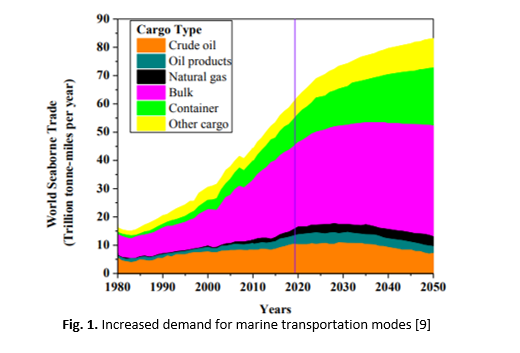Hydrogen Application as a Renewable Fuel in the Internal Combustion Engine and Fuel Cell towards Zero Carbon Emission: A Technical Review
DOI:
https://doi.org/10.37934/arefmht.21.1.96125Keywords:
Fuel cell, hydrogen, hydrogen storage, internal combustion engine, zero emissionAbstract
Global efforts to lessen environmental effects, particularly in the marine industry, which make up around 90% of global trade, are led by the switch from traditional fossil fuels to renewable energy. Carbon emissions from cargo ships, including tankers, container ships, and bulk carriers, have become a significant concern due to the rising need for marine transportation. With a primary focuses on shipboard applications, this study compares internal combustion engines with fuel cell technology to assess hydrogen as a potential alternative fuel for the marine industry. One benefit of using hydrogen as a combined fuel with other fuels is that it can cut greenhouse gas emissions by as much as 40%. Fuel cell technology is more efficient than hydrogen-fuelled ICEs, reaching up to 60%, while internal combustion only reaches 20-25%. In addition, fuel cells produce no carbon emissions, making them more environmentally friendly. However, significant challenges include the cost of hydrogen production, limited storage and distribution infrastructure. The study also discusses technical and operational aspects, including hydrogen storage methods, such as compressed storage, cryogenic storage, and electrochemical storage, and emissions challenges faced by hydrogen-fuelled ICEs, such as increased NOx emissions due to high combustion temperatures. The analysis concluded that hydrogen fuel has great potential to support the decarbonization of the maritime sector. This review paper offers an extensive examination of the opportunities and obstacles linked to the utilization of hydrogen as a renewable fuel, specifically in the context of fuel cell engines, and internal combustion, and establishes a basis for promoting sustainable renewable energy within the maritime sector.
Downloads























